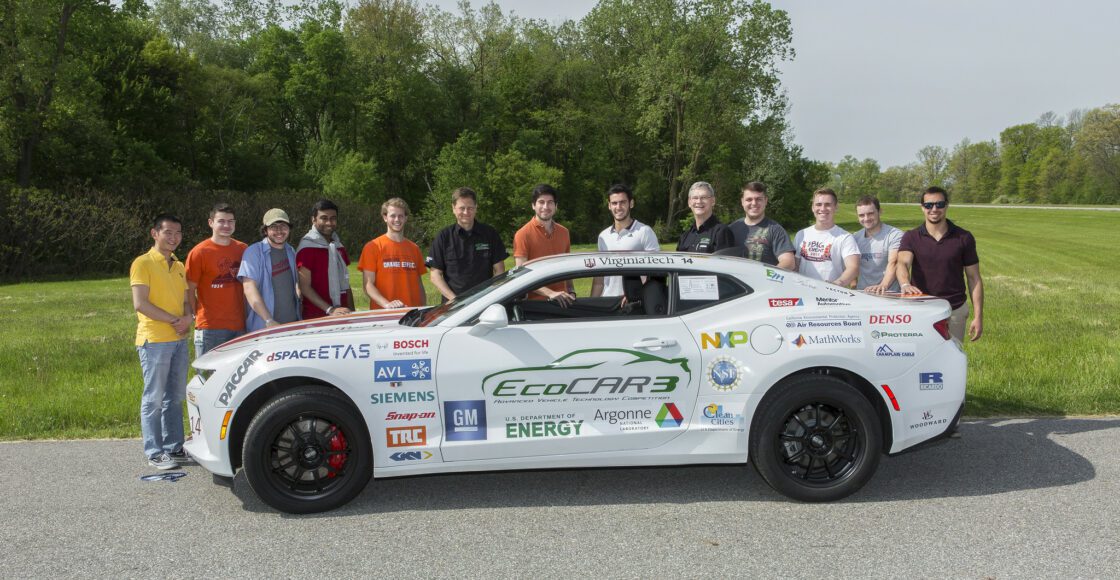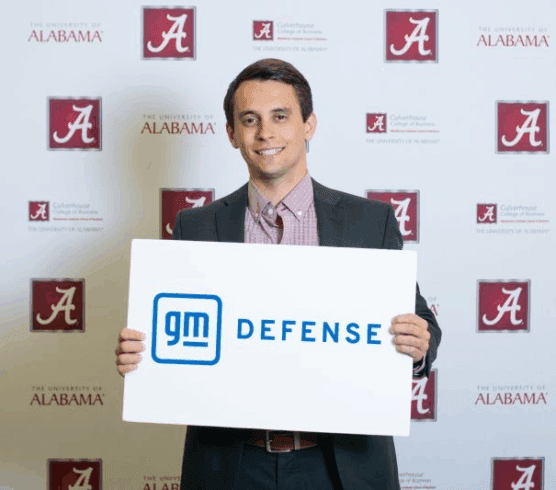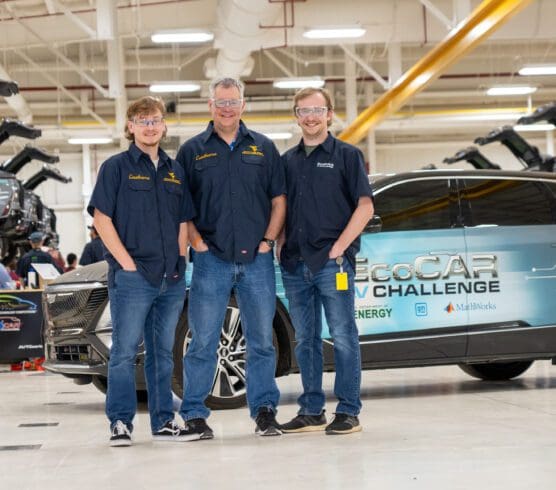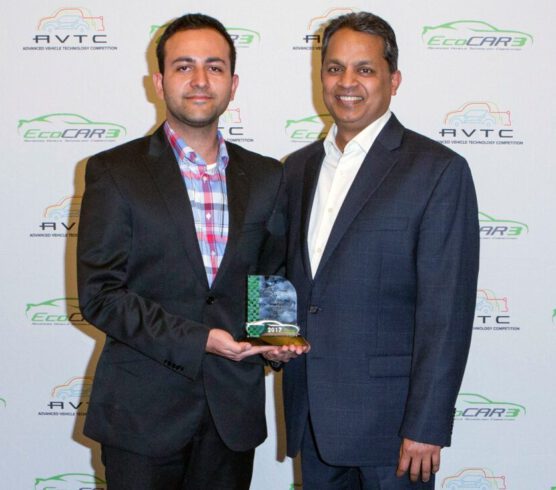Charles Hua has been involved with Advanced Vehicle Technology Competitions (AVTCs) in two different ways: as a student and as a General Motors mentor.
While studying chemical engineering at the University of Waterloo, Charles competed in the third and fourth years of ChallengeX. He learned about Waterloo’s teams as a graduate student when the team’s captain asked if he could lend the team a helping hand. “Naturally, since I’ve always been interested in cars, I helped him out,” said Hua. “A few hours turned into a few years and my current career path.”
Hua (3rd left, 2nd row) with the UWAFT team during ChallengeX 2008.During his two years on Waterloo’s team, Charles held a variety of positions, including Hydrogen and Steam group leader both years, and Team Leader during his final year. Charles recalls many memorable and stressful moments during the team’s “crunch time” – especially when preparing presentations – but said it was all worth it in the end.
“Being in the pits with 16 other teams, all of us working on the cars at the same time and scrambling to get our vehicles together and functional for the same goal, is surreal,” he said. “I can’t imagine anywhere else where I would have been able to experience such an awesome event. It is certainly something I will never forget, and luckily for me, I get to continue to experience this as a mentor.”
After graduating from Waterloo, Charles was offered a position at General Motors as a High Voltage Battery Performance Engineer. He also is a GM mentor for the Embry-Riddle Aeronautical University (ERAU) EcoCAR 2 team.
Charles accepting a GM mentor gift during EcoCAR: The NeXt Challenge.“The competition was a critical part of my career path in leading me to where I am today,” he said. “It gave me great organizational and technical skills that you don’t get in a classroom, and team work skills that are critical in any position in the professional world.”
Charles said his involvement as a mentor for ERAU allows him to provide technical insight, suggestions for development paths based on his experiences, and a path to GM resources that the students normally wouldn’t have without a mentor.
“I would say that the most important role of a mentor is to be the eyes and ears of the talent acquisition team at GM,” he said. “The mentors have the most time and experience with the team, so we can provide the best recommendations for potential hires to GM.”
Charles adds that the AVTC program continues to focus on the students – to make sure that they learn critical skills for the field, gain valuable experience and become as prepared for the real world as they can be.
“Technically and logistically, it has changed to suit the constantly evolving technology as well as improve logistically over the previous years,” he said. “This allows the students to get more out of the competition.”




